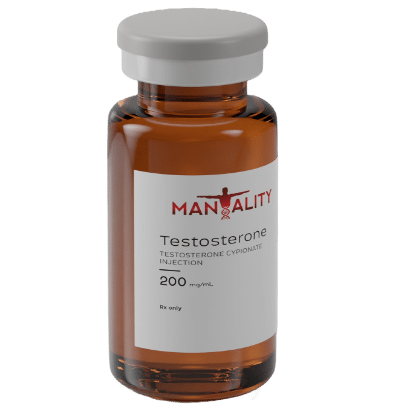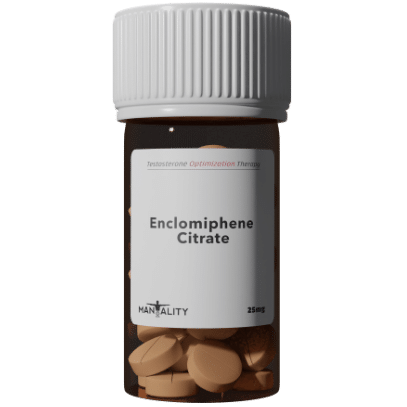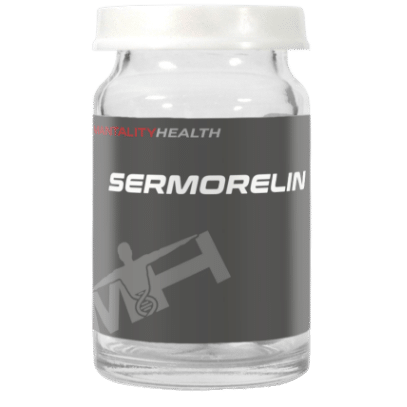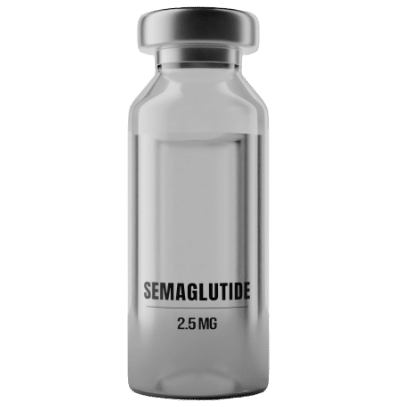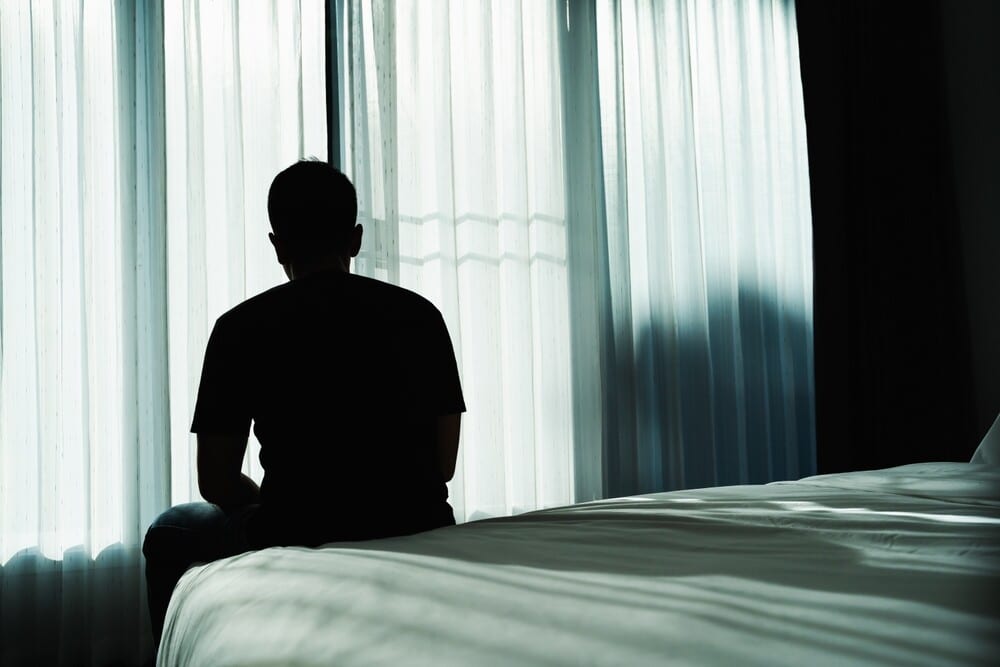What is the link between testosterone and depression?
The sad truth is that men who have lower levels of testosterone suffer from much higher rates of depression. Clearly, more and more studies are pointing at the fact that low testosterone and anxiety may be intrinsically linked to each other.
Question: does low testosterone cause depression?
Take a look at our comprehensive article to discover if this is the case for you and if it’s even possible.
Why Is My Testosterone Low, Anyway?
Before we dive into why your testosterone is low, we’ll remind you about what testosterone is. Also known as an androgen, testosterone is a male sex hormone. Healthy levels of testosterone help men develop signature features such as:
- Muscle definition
- Bone mass
- Body hair
For those of you who are confused, women can produce their own sources of testosterone as well. However, it is in a much lower amount than it is in males. That’s why testosterone is often known as a “male hormone.”
So, what does all this have to do with depression and mental health?
Testosterone Levels and Mental Health
Fair question. When your testosterone levels are low, it can cause a bunch of emotional and physical symptoms which include depression. In case you are not in the loop, low levels of testosterone in men can point to a disorder called hypogonadism.
This happens when a male’s reproductive system is not able to produce enough testosterone for their body. Men who have had an injury to their reproductive system that may have what’s called primary hypogonadism. But have no fear – this only occurs in males who have had higher than normal levels of iron in their blood or mumps.
On the other hand, there is also a secondary hypogonadism. This can affect men whose pituitary gland doesn’t get the signal to produce the right amount of testosterone. If you are feeling super curious, secondary hypogonadism can happen if you are:
- Taking opioid medications
- Overweight or obese
- Have tuberculosis
- Are diagnosed with AIDS
- Have HIV
- Aging normally
Does this sound familiar?
If yes, you might want to try hormone placement therapy. Here’s the kicker – your treatment plan may be different depending on the particular cause of your low T condition.
But what are the symptoms of low testosterone?
Understanding Low Testosterone Symptoms
If you are having a hard time understanding the symptoms of low testosterone, allow us to help. Unfortunately, testosterone levels can cause dramatic changes to your emotional and physical life. In addition to impacting your sexual health, you might also find that your muscle and bone strength are rapidly decreasing too.
We know this because it is very common for men to experience both muscle and bone mass whenever their testosterone levels drop. Unnecessary weight gain is another side effect of low levels of testosterone in males, increasing your odds of developing:
- High blood pressure
- Early-onset diabetes
- Severe osteoporosis
Although it is natural for men of any age to live with low testosterone symptoms, it’s even more popular in aging adults. Here is the craziest part. Some of the most prevalent systems of low testosterone in women and men include:
- Irritability
- Depression
- Anxiety
Nonetheless, there is still a lot of research to be done to show what the exact correlation between the two is. What we know for sure is that testosterone replacement therapy can elevate the moods of men who are suffering from low T symptoms.
How can you tell the difference between depression and low testosterone levels?
We have got you covered. There is a ton of overlap between the symptoms of depression and low testosterone. Thus, properly diagnosing elements can be a little bit tricky.
To make things even more complex, anxiety, difficulty thinking, and depression are also common red flags of aging. Not to mention memory problems, trouble concentrating, and sleep issues are a given as well. Thankfully, the physical signs of depression and low testosterone are completely different.
While the symptoms of depression focus on the back pain and headaches, the manifestations of low T involve loss of muscle strength. Nobody wants that, right?
Treatment & Support for Low Testosterone
Question: can low testosterone cause anxiety?
The short answer is yes. Luckily for you, there are a lot of different options in terms of treatment support for low testosterone levels. Hormone replacement therapy is a great option that will help you to balance and restore regular levels of testosterone.
Crazily enough, there are several forms of synthetic testosterone available on the market. In case you’re curious, some of the most popular choices are:
- Intravenous injections into your bloodstream
- Dermal patches that you apply to your skin
- Topical gels that are absorbed through your skin
However, it’s ultimately between you and your physician to figure out which method of delivery is right for your life, insurance, and health. That’s not all.
If you are a man with low levels of testosterone, you might also have issues with their physical appearance and self-confidence. Besides, concentration problems, memory loss, and insomnia negatively impact your well-being as well. But here’s the catch: your mental symptoms could still remain after you decide on the proper course of treatment.
Fortunately for you, there is an answer to that as well. We suggest that you incorporate mindful meditation and breathing exercises into your daily life. Believe it or not, this can be a wonderful solution for those who have extreme anxiety and sleep problems.
When you pay attention to every breath, your body will automatically relax, emptying your brain of negativity along the way. If meditating is not your thing, have no fear. You can always sort out your feelings and thoughts via journaling too.
Quick reminder: there is nothing wrong with jotting down your thoughts!
Does Low T Treatment Cure Depression?
Are low levels of testosterone affecting your emotional health?
If that is the case, journaling whenever you are in the mood is a big stress reliever. To be quite honest with you, low testosterone levels affect every male differently. If all else fails, cognitive behavioral therapy is the way to go.
That is because the therapist can help you to build the techniques that you need to cope with your mental health issues. If your loved one is dealing with low testosterone levels, being understanding and patient is the best way that you can show love and support.
Besides this, researchers have talked about if testosterone therapy can treat depression in males for many years. We already know that healthy levels of testosterone can boost mood, particularly because it is a “neuroactive steroid.”
When tested on rodents, testosterone replacement therapy improved their serotonin production as well. Obviously, levels of testosterone decline as men grow older. To make matters worse, males with low T levels also have higher odds of feeling depressed.
But here’s the thing: While some studies have found a link between low testosterone levels and depression, others did not. Thus, the jury still out on this hot debate. Nonetheless, we strongly believe that depressive men will benefit from testosterone replacement therapy.
For the uninitiated, current therapies for depression are only effective on a small part of the populace. That is why it is so important to find out if testosterone is a viable treatment for people who are resistant to therapy. All this to say that there’s still a large amount of research to be done on this topic.
Meanwhile, the goal is to see if testosterone treatment can alleviate symptoms of depression in men. Stay tuned to learn more about testosterone and its relation to emotional health!
Getting Diagnosed With Low Testosterone
Before you can get started on the right course of treatment for you, you must get diagnosed with low testosterone levels. One of the primary ways that your testosterone levels are tested is with a simple blood test. Surprisingly enough, this is all it takes to measure how bad your testosterone deficiency really is.
To get diagnosed, your physician will compare your testosterone blood level to other symptoms that you have. At your next appointment, you will provide personal information to determine your health history. Then, your physician will conduct an exam to explore the symptoms and the signs that we’ve discussed above.
In terms of your health history, your medical physician may question you about visual field changes and headaches. Also, expect to be asked how you developed during puberty, as well as a few have a head trauma history. Also, questions about cranial surgery, cranial irradiation, or brain tumor are standard as well.
Your doctor might also ask you about any testicular injuries, pubescent mumps, and chemotherapy. Otherwise, your physician may ask you about your past or present use of opiates, anabolic steroids, and glucocorticoids.
Another word of advice is to let your physician know if you have a family history of low testosterone-related diseases too. This includes things like unexplained anemia, strokes, or anosmia.
Now that we’ve got that covered, it’s time to move onto your physical exam. At this point, your position will check for:
- Any abnormalities with your prostate size
- The size and presence of your testicles
- Hair location, amounts, and pattern
- Enlarged breasts
But wait – we are only getting started. It is also common for your doctor to inspect you for metabolic syndrome. While we are on the subject, your physician will also check your waist circumference or body mass index for obesity!
Testing for Low Testosterone Levels
Here comes the fun part: testing for low levels of testosterone at your next doctor’s appointment. Don’t be surprised if your doctor orders the following blood tests:
- Total testosterone level
- Luteinizing hormone
- Blood prolactin level
First of all, your total testosterone level will be tested. Conducted at two separate times taken during the day, this test is usually conducted before lunchtime.
For those of you who are scratching your head, let us explain. Your test is not taken later in the afternoon because your testosterone levels are likely to drop as time goes on. If you are feeling sick, your physician will most likely wait until you are feeling well again. That’s because your illness might give your doctor a “false result.”
What on earth is a luteinizing hormone test?
Allow us to break it down for you. This helpful to us is great for figuring out what the exact cause of your low levels of testosterone is. Also, the luteinizing hormone helps you to produce more testosterone. Therefore, having odd levels of the luteinizing hormone can signal a problem with your pituitary gland.
How about blood prolactin level exams?
If you have never heard of this type of exam, rest assured that is not as scary as you would think. Moving forward, high levels of prolactin in your blood might mean that your physician has to repeat a blood test to ensure that there are no mistakes. Otherwise, high levels of prolactin could be a signal of pituitary problems as well!
Don’t Let Testosterone and Depression Stop You
Want to hear our advice?
It’s simple: don’t let testosterone and depression stop you from living your best life. From injections and patches to gels and hormone therapy, there are countless ways to improve your testosterone count.
The good news is that once your testosterone levels increase, your depression symptoms should go away before you know it.
Searching for a trustworthy testosterone supplement for men?
Simply fill out our contact form to schedule an appointment right away!

